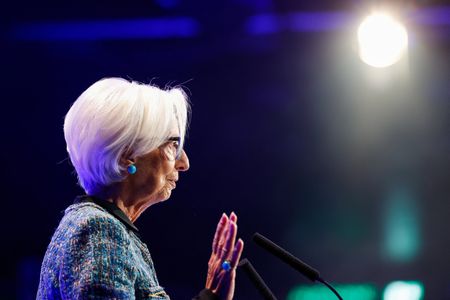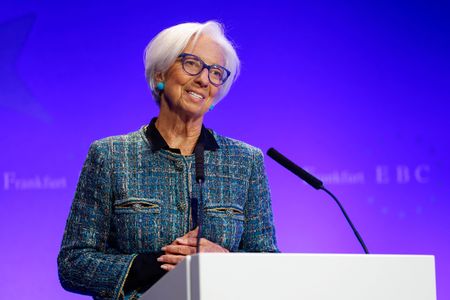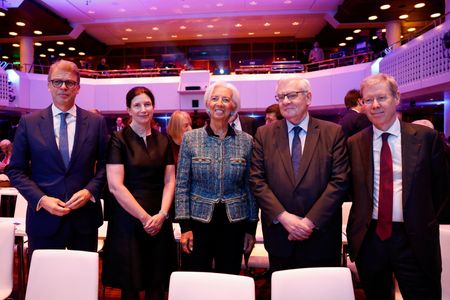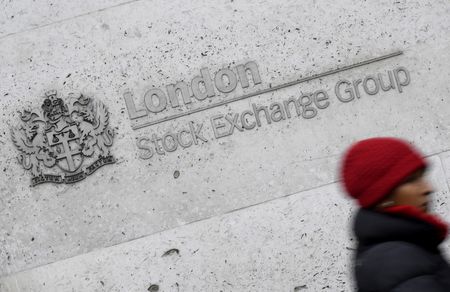FRANKFURT (Reuters) -The European Union can offset the economic drag from U.S. trade tariffs and deglobalisation by removing internal barriers, top European Central Bank policymakers said on Friday.
The EU is quickly falling behind global competitors because of weak competitiveness, structural rigidities and a complex set of rules that often vary greatly across 27 member states.
“Our analysis shows that if all EU countries were merely to lower their barriers to the same level as that of the Netherlands, internal barriers could fall by about 8 percentage points for goods and 9 percentage points for services,” ECB President Christine Lagarde said.
“If we only did a quarter of that, it would be sufficient to boost internal trade enough to fully offset the impact of U.S. tariffs on growth,” Lagarde told a conference.
The Netherlands is one of the EU’s most open economies.
Lagarde’s suggestions echo calls by Mario Draghi, a former ECB president and former Italian prime minister, who outlined a series of proposals last year designed to make the EU more competitive. They have been largely ignored by policymakers.
NEED TO HELP EUROPE’S ‘HIDDEN CHAMPIONS’
Bundesbank President Joachim Nagel said the EU’s internal barriers prevented “hidden champions”, or well-established firms with strong domestic reach, from having the sort of global impact that U.S. rivals enjoy.
“Many firms are neither small enough to be truly agile and highly innovative, nor large enough to fully benefit from economies of scale,” Nagel said at the same event in Frankfurt.
To overcome these barriers, Lagarde and Nagel both argued for a so-called ’28th regime’ – an alternative legal framework that would be uniform across the EU and stand above the 27 member states’ own rules, into which firms would be free to opt in.
Such an optional regime would ease the need to harmonise rules, a seemingly impossible task, given the complexities.
“This would make cross-border operations easier, cut compliance costs even more, and help businesses scale up faster,” Nagel said. “In effect, it would remove some of the remaining barriers across our internal market, which encompasses 450 million customers.”
Such a regime could also mobilise domestic savings, which are leaving the bloc in hopes of better returns. Euro zone households now keep around 6.5 trillion euros in U.S. stocks, about twice the amount they held at the end of 2015.
“If we get this right, firms that could grow based on genuinely European regimes would also be best placed to access pan-European financing, helping to channel our vast savings into productive investment,” Lagarde added.
Lagarde’s other suggestions included harmonising value-added taxes and extending qualified majority voting in the EU, so veto powers could be wielded less frequently.
Lagarde also praised fiscal spending, especially in Germany, for buffering the economy and said the ECB, which has cut rates sharply in 2024-25, would play its part.
“We will continue to adjust our policy as needed to ensure that inflation remains at our target,” Lagarde said.
(Reporting by Francesco Canepa and Balazs KoranyiEditing by Gareth Jones)












